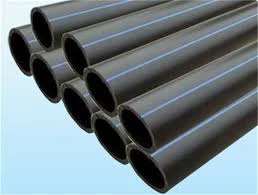Nov . 12, 2024 06:02 Back to list
large diameter pvc pipe
Understanding Large Diameter PVC Pipes Applications, Advantages, and Considerations
Large diameter PVC pipes have become an essential component in various industries due to their impressive properties and versatility. Ranging from 10 inches to over 48 inches in diameter, these pipes are used in a multitude of applications, from water drainage and sewage systems to industrial processes and agricultural irrigation. This article will explore the advantages of large diameter PVC pipes, their applications, and considerations for their use.
Advantages of Large Diameter PVC Pipes
1. Lightweight and Easy to Handle One of the most significant advantages of PVC (Polyvinyl Chloride) pipes is their lightweight nature compared to traditional materials like concrete or metal. This makes them easier to transport and handle on-site, reducing labor costs and the need for heavy machinery during installation.
2. Corrosion Resistance PVC is inherently resistant to corrosion, which is particularly advantageous in environments where pipes are exposed to chemicals or moisture. Unlike metal pipes, which can rust and degrade over time, PVC maintains its integrity even in harsh conditions.
3. Durability Large diameter PVC pipes have a long lifespan, often exceeding 50 years with proper installation and maintenance. This durability makes them a cost-effective solution over the long term, as they require less frequent replacements.
4. Smooth Interior Surface The interior surface of PVC pipes is smooth, which reduces friction and allows for a quicker flow of liquids. This feature is particularly beneficial in wastewater and stormwater management systems, where efficient flow is crucial.
5. Cost-Effectiveness When considering the overall life cycle of the product, large diameter PVC pipes offer significant cost savings. Not only are they affordable to purchase, but their longevity, low maintenance needs, and energy efficiency also lead to reduced operational costs.
Applications of Large Diameter PVC Pipes
1. Water Supply Systems Large diameter PVC pipes are widely used in municipal water supply systems, where they transport potable water from treatment facilities to residential and commercial areas. Their resistance to corrosion and scaling makes them an ideal choice for these applications.
large diameter pvc pipe

2. Sewage and Drainage Systems These pipes are fundamental components of sewage systems, allowing for the safe transport of wastewater away from urban areas. They are also used in stormwater drainage applications, efficiently carrying excess rainwater away from streets and landscapes.
3. Industrial Applications In industrial settings, large diameter PVC pipes are used for transporting various fluids, including corrosive chemicals, due to their resistance to chemical attacks. They can also be found in cooling systems and process piping.
4. Agricultural Irrigation The agricultural sector relies on large diameter PVC pipes for irrigation systems, ensuring efficient water distribution over large areas. Their lightweight and durable nature makes them an optimal choice for transporting water to crops.
5. Telecommunication and Electrical Conduit Large diameter PVC pipes are often employed as conduits for electrical wiring and telecommunication cables. Their non-conductive properties ensure safety and reliability in various installations.
Considerations for Use
Despite their many advantages, there are considerations to factor in when using large diameter PVC pipes. Proper installation techniques are crucial to avoid potential issues like joint failure or pipe sagging. Additionally, PVC pipes are sensitive to UV radiation, which can cause degradation over time if they are not properly covered or painted. Using additives or coatings can mitigate these effects.
Another consideration is temperature resistance. PVC has a maximum operating temperature of around 140°F (60°C). In applications where temperatures may exceed this threshold, it may be necessary to explore alternatives like CPVC (Chlorinated Polyvinyl Chloride).
Conclusion
Large diameter PVC pipes are invaluable in modern infrastructure across numerous industries. Their lightweight, corrosion-resistant, and durable properties make them a preferred choice for water supply, sewage, industrial applications, and more. Understanding their advantages, applications, and considerations for use is essential for optimizing their performance and ensuring successful long-term investments. As the demand for efficient and sustainable infrastructure continues to grow, large diameter PVC pipes will undoubtedly play a crucial role in shaping the future of utility systems and industrial processes.
-
High-Quality PPR Pipes and Fittings Durable ERA PPR & PVC PPR Solutions
NewsJul.08,2025
-
Black HDPE Cutting Board - Durable, Non-Porous & Food Safe HDPE Plastic Cutting Board
NewsJul.08,2025
-
High-Quality CPVC Panel Durable HDPE & PVC Panels Supplier
NewsJul.08,2025
-
Double PE Welding Rod Supplier - High Strength, Durable & Versatile Welding Solutions
NewsJul.07,2025
-
High-Quality PVC-O Pipe Supplier Durable 75mm PVC Pipe & Connections Leading PVC Pipe Company
NewsJul.07,2025
-
HDPE Drainage Pipe Supplier – Durable & Corrosion-Resistant Solutions
NewsJul.06,2025

